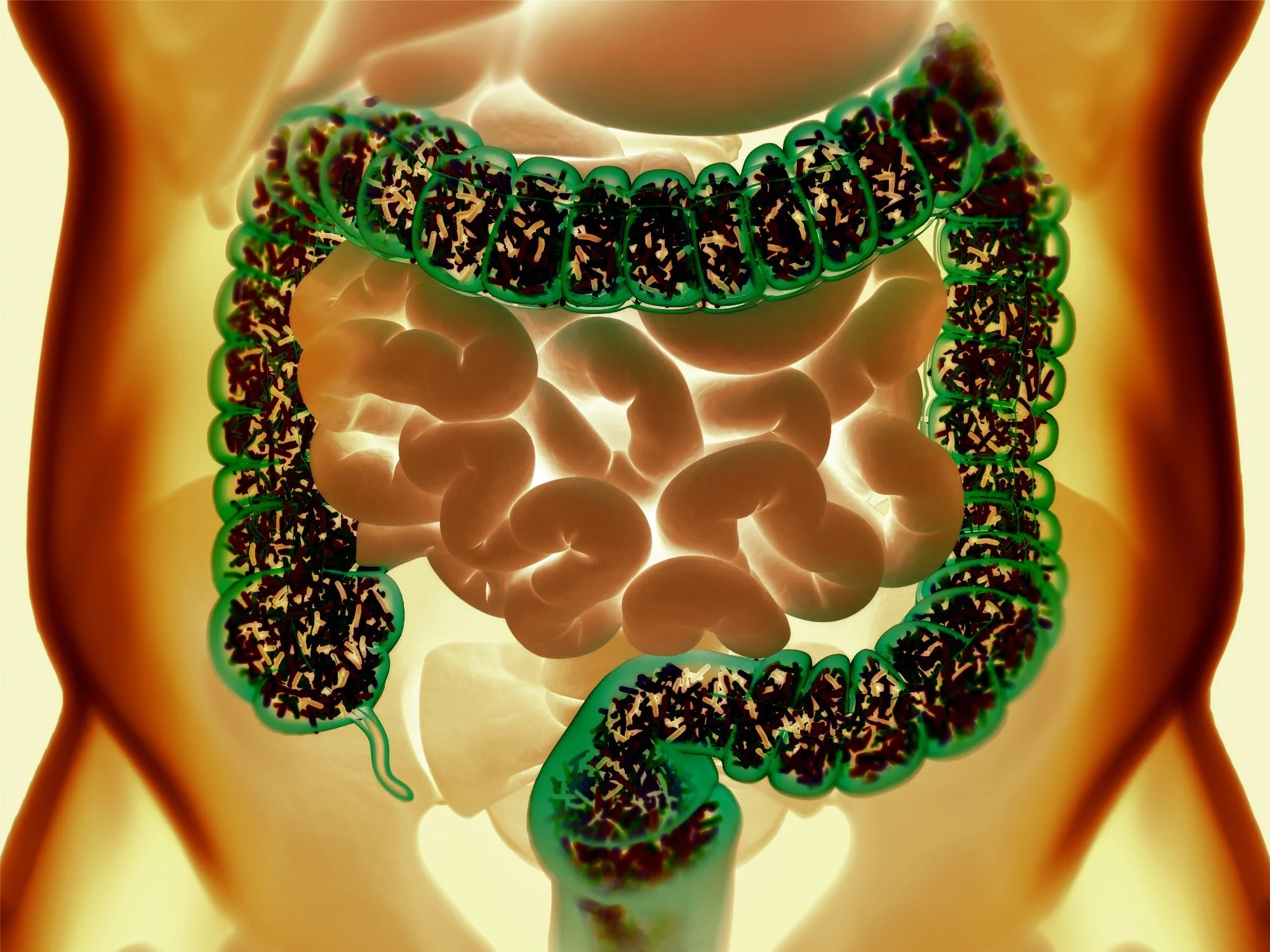The human microbiome, consisting of trillions of microorganisms including bacteria, viruses, fungi, and protozoa, resides primarily in the gut and plays a vital role in health.
A healthy microbiome ensures proper digestion, immune system regulation, and even mental well-being.
Recent studies reveal its far-reaching impact on diseases such as diabetes, obesity, and mental health disorders (Cho & Blaser, 2012).
What are the characteristics of a healthy microbiome?
Diversity: A robust microbiome is characterized by a wide variety of microbial species.
Higher diversity is associated with resilience against infections and diseases (Sommer et al., 2017).
Balance: Beneficial bacteria such as Lactobacillus and Bifidobacterium should dominate, keeping harmful species in check (Kailasapathy & Chin, 2000).
Stability: Consistency in microbial composition supports long-term health and reduces susceptibility to dysbiosis (imbalance) (Das & Nair, 2019).
How to maintain a healthy microbiome?
Make good dietary choices.
Prebiotics (foods like garlic, onions, bananas, and asparagus) feed beneficial bacteria (Madrid, 2020).
Probiotics (fermented foods such as yogurt, kefir, kimchi, and sauerkraut) introduce beneficial bacteria (Kok & Hutkins, 2018).
Fiber-rich foods (whole grains, fruits, and vegetables) promote microbial diversity (Um et al., 2023).
Limit ultra-processed foods as these foods are often low in fiber and can promote harmful bacteria (Levy et al., 2024).
Avoid overuse of antibiotics.
Antibiotics can disrupt the gut microbiome by eliminating both harmful and beneficial bacteria (Ribeiro et al., 2020).
Use them only when prescribed and necessary.
Chronic stress can negatively impact gut health (Leigh et al., 2023).
Practices like meditation and yoga are beneficial.
Poor sleep patterns are linked to gut dysbiosis (Matenchuk et al., 2020).
Adults should aim for 7-9 hours per night.
Regular moderate exercise promotes microbial diversity.
Exposure to pesticides and chemicals can harm the gut microbiome (Chu et al., 2020).
Opt for whole-foods produce when possible.
A 2023 study published in PubMed Central demonstrated that a diet high in plant-based foods significantly increased gut microbiota diversity over 12 weeks (Sidhu et al., 2023).
The PMC also reported that individuals consuming more than 30 different plant-based foods weekly had the most diverse microbiomes (McDonald et al., 2018).
References:
Chiu, K., Warner, G., Nowak, R. A., Flaws, J. A., & Mei, W. (2020). The impact of environmental chemicals on the gut microbiome. Toxicological Sciences, 176(2), 253-284.
Cho, I., & Blaser, M. J. (2012). The human microbiome: at the interface of health and disease. Nature Reviews Genetics, 13(4), 260-270.
Das, B., & Nair, G. B. (2019). Homeostasis and dysbiosis of the gut microbiome in health and disease. Journal of biosciences, 44, 1-8.
Kailasapathy, K., & Chin, J. (2000). Survival and therapeutic potential of probiotic organisms with reference to Lactobacillus acidophilus and Bifidobacterium spp. Immunology and cell biology, 78(1), 80-88.
Kok, C. R., & Hutkins, R. (2018). Yogurt and other fermented foods as sources of health-promoting bacteria. Nutrition reviews, 76(Supplement_1), 4-15.
Leigh, S. J., Uhlig, F., Wilmes, L., Sanchez‐Diaz, P., Gheorghe, C. E., Goodson, M. S., … & Clarke, G. (2023). The impact of acute and chronic stress on gastrointestinal physiology and function: a microbiota–gut–brain axis perspective. The Journal of Physiology, 601(20), 4491-4538.
Levy, R. B., Barata, M. F., Leite, M. A., & Andrade, G. C. (2024). How and why ultra-processed foods harm human health. Proceedings of the Nutrition Society, 83(1), 1-8.
Madrid, E. (2020). The Benefits of Prebiotics. Benefits, 20.
Matenchuk, B. A., Mandhane, P. J., & Kozyrskyj, A. L. (2020). Sleep, circadian rhythm, and gut microbiota. Sleep Medicine Reviews, 53, 101340.
McDonald D, Hyde E, Debelius JW, Morton JT, Gonzalez A, Ackermann G, Aksenov AA, Behsaz B, Brennan C, Chen Y, DeRight Goldasich L, Dorrestein PC, Dunn RR, Fahimipour AK, Gaffney J, Gilbert JA, Gogul G, Green JL, Hugenholtz P, Humphrey G, Huttenhower C, Jackson MA, Janssen S, Jeste DV, Jiang L, Kelley ST, Knights D, Kosciolek T, Ladau J, Leach J, Marotz C, Meleshko D, Melnik AV, Metcalf JL, Mohimani H, Montassier E, Navas-Molina J, Nguyen TT, Peddada S, Pevzner P, Pollard KS, Rahnavard G, Robbins-Pianka A, Sangwan N, Shorenstein J, Smarr L, Song SJ, Spector T, Swafford AD, Thackray VG, Thompson LR, Tripathi A, Vázquez-Baeza Y, Vrbanac A, Wischmeyer P, Wolfe E, Zhu Q; American Gut Consortium; Knight R. American Gut: an Open Platform for Citizen Science Microbiome Research. mSystems. 2018 May 15;3(3):e00031-18. doi: 10.1128/mSystems.00031-18. PMID: 29795809; PMCID: PMC5954204.
Ribeiro, C. F. A., Silveira, G. G. D. O. S., Candido, E. D. S., Cardoso, M. H., Espinola Carvalho, C. M., & Franco, O. L. (2020). Effects of antibiotic treatment on gut microbiota and how to overcome its negative impacts on human health. ACS Infectious Diseases, 6(10), 2544-2559.
Sidhu SRK, Kok CW, Kunasegaran T, Ramadas A. Effect of Plant-Based Diets on Gut Microbiota: A Systematic Review of Interventional Studies. Nutrients. 2023 Mar 21;15(6):1510. doi: 10.3390/nu15061510. PMID: 36986240; PMCID: PMC10057430.
Sommer, F., Anderson, J. M., Bharti, R., Raes, J., & Rosenstiel, P. (2017). The resilience of the intestinal microbiota influences health and disease. Nature Reviews Microbiology, 15(10), 630-638.
Um, C. Y., Peters, B. A., Choi, H. S., Oberstein, P., Beggs, D. B., Usyk, M., … & Ahn, J. (2023). Grain, gluten, and dietary fiber intake influence gut microbial diversity: data from the food and microbiome longitudinal investigation. Cancer Research Communications, 3(1), 43-53.

